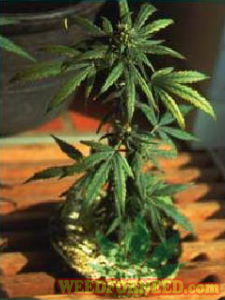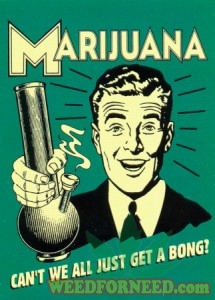Posts Tagged ‘cannabis’
Mexico former president advocates for drug legalization
And here’s one more former politician advocating for legalization of drugs! It seems that quite a few of them can have a totally different speech once they retire. This double-sided view doesn’t reassure much when you realize these guys have the power, or better to say, they serve it. The organised crime in Mexico has [...]![]()
Read the rest of this entry »
Oakland legalizes Marijuana Farms
 Oakland’s City Council late Tuesday adopted regulations permitting industrial-scale marijuana farms, a plan that some small farmers argued would squeeze them out of the industry they helped to build.
Oakland’s City Council late Tuesday adopted regulations permitting industrial-scale marijuana farms, a plan that some small farmers argued would squeeze them out of the industry they helped to build.
Read the rest of this entry »
Nutrient deficiency: Magnesium (Mg)
Summary
 Magnesium is a vital element for humans, plants and animals. Among other things it is a building block for chlorophyll in plants so it is essential for photosynthesis and it also plays an important role in a number of metabolic processes. Magnesium compounds have been used since antiquity in medicine for heartburn, against poisoning and as a laxative. Magnesium powder is used on equipment for gymnastic exercises because it makes the hands rough and absorbs moisture. Magnesium is a very light, malleable, elastic metal with a silver-white sheen that burns with a blinding light in the air. It is one of the most common elements on earth and the earth’s crust contains approx. 2.09% magnesium, but only in compound form. Magnesium compounds are frequently found in seawater, salt deposits, water from salt lakes and in some mineral waters. It is also present in tap water and, together with calcium, is responsible for the hardness of water. Inorganic, magnesium fertilizers are prepared from the same salts as are used when preparing potassium fertilizers. When grown from seeds cannabis don’t need extra nutrients for the first two weeks.
Magnesium is a vital element for humans, plants and animals. Among other things it is a building block for chlorophyll in plants so it is essential for photosynthesis and it also plays an important role in a number of metabolic processes. Magnesium compounds have been used since antiquity in medicine for heartburn, against poisoning and as a laxative. Magnesium powder is used on equipment for gymnastic exercises because it makes the hands rough and absorbs moisture. Magnesium is a very light, malleable, elastic metal with a silver-white sheen that burns with a blinding light in the air. It is one of the most common elements on earth and the earth’s crust contains approx. 2.09% magnesium, but only in compound form. Magnesium compounds are frequently found in seawater, salt deposits, water from salt lakes and in some mineral waters. It is also present in tap water and, together with calcium, is responsible for the hardness of water. Inorganic, magnesium fertilizers are prepared from the same salts as are used when preparing potassium fertilizers. When grown from seeds cannabis don’t need extra nutrients for the first two weeks.
Another resignation at the UK’s Advisory Council on Drugs
 Over the past 6 months the UK’s Advisory Council on the Misuse of Drugs (ACMD)—an independent expert body that advises government on drug-related issues—has hardly been out of the headlines. One sacking and seven resignations is not a good track record for any organisation. The public’s discontent at the ACMD over how it operates and how it is unduly influenced by government has left a bitter taste, together with a crisis in confidence about evidence-based policy making in the UK.
Over the past 6 months the UK’s Advisory Council on the Misuse of Drugs (ACMD)—an independent expert body that advises government on drug-related issues—has hardly been out of the headlines. One sacking and seven resignations is not a good track record for any organisation. The public’s discontent at the ACMD over how it operates and how it is unduly influenced by government has left a bitter taste, together with a crisis in confidence about evidence-based policy making in the UK.
Read the rest of this entry »
How to build your cannabis growroom video
This video explains in detail how to build your own growroom and how to grow first class cannabis in the comfort of your own home. The video covers everything you need to know about growing weed indoors – from the materials needed to build your growroom to the appropriate humidity level and amount of water needed per marijuana plant. If you are planning to grow your medicinal weed at home this video is a must see!
Read the rest of this entry »
Cannabis Growing in Australia
 Richard Friar, a 66-year-old farmer from Australia, and his wife Wendy are the proud owners of Australia´s first licensed industrial hemp crop to be grown in an urban area.
Richard Friar, a 66-year-old farmer from Australia, and his wife Wendy are the proud owners of Australia´s first licensed industrial hemp crop to be grown in an urban area.
Read the rest of this entry »
New UK Government’s drug adviser Les Iversen seems to have a selective memory
 Another crazy news story from the UK. As you might have read David Nutt was sacked because of him criticizing the Government’s decision to reclassify cannabis as a Class B substance.. He argued that the scientific research was devaluated and the UK government making an “artificial” separation of alcohol and tobacco from illegal drugs.
Another crazy news story from the UK. As you might have read David Nutt was sacked because of him criticizing the Government’s decision to reclassify cannabis as a Class B substance.. He argued that the scientific research was devaluated and the UK government making an “artificial” separation of alcohol and tobacco from illegal drugs.
Read the rest of this entry »
Cannabis legal in the Czech Republic?!

The Czech Republic is bringing in some very interesting legislation in 2010.
From January 1st, individuals in possession of 15 grams of cannabis or less will not be charged with a crime in the Czech Republic. The new laws, which decriminalize the possession of ‘small amounts’ of most currently illegal drugs, are based on a Justice Ministry proposal which was approved by the Czech government earlier this month.
Read the rest of this entry »
Cannabis Cultuurprijs (cannabis culture award)

The Cannabis Cultuurprijs 2009, now in its sixth year, is presented to individuals who have made significant contributions towards the acceptance of cannabis in all its forms and to the reintegration of marihuana and hemp culture into modern society.
Read the rest of this entry »
18 negative effects of the ban on cannabis

Here is a list of some of the negative effects of the ban on cannabis:
- The ban on cannabis means that in addition to the coffeeshops and people who grow for their own use, an illegal market in cannabis also exists. There is no possibility of control over this illegal market which leads to criminality, unsafe situations, and events that disturb the peace; and to which underage people have easy access.
- The ban on cannabis makes large scale crops and export of the product into a lucrative source of income for criminal organizations which can then use this income for other criminal activities, or ‘wash’ it via money laundering operations that can disturb the legal economy.
- The ban on cannabis encourages criminal and antisocial behavior: rules concerning safety and security (for growing and in the marketplace) are easily broken and this goes unpunished. Conflicts are resolved using violence.
- The ban on cannabis leads to an increase in prices, as the producer in an illegal market calculates their risk into the price.
- The ban leads to a migration of tourists to coffeeshops near the borders of the country, and the operation of ‘drug runners’ to transport the product. Simple solutions for this problem such as the proposal for a so-called ‘Weed Boulevard’ with legal supply logistics are held back by the ban on cannabis.
- The ban on cannabis puts enormous pressure on the resources of the police and the justice system, which cannot then devote them to other, more important goals. Some of the methods used to enforce the ban limit the personal freedom of civilians and are a matter of contention in court.
- The costs of enforcing the ban on cannabis are not justified by the results. Although the goal of the ban (an essential reduction in supply and demand) fails to come a single step closer, the ban itself is never brought forward for discussion.
- The ban on cannabis damages the credibility of the government, given that the use of cannabis continues to be firmly naturalized in society.
- The (world-wide) ban on cannabis is one of the pillars of the U.S. dominated War On Drugs, which has led to sizeable global violations of human rights; and severely damages both the environment, and the security of the populations of cannabis-producing lands.
- The ban on cannabis impedes the development of the industrial applications of the plant, which is capable of making a very valuable contribution to a sustainable future.
- The ban on cannabis makes it impossible to carry out standardized controls on the product. Therefore demands can hardly be placed on the product in terms of consistent quality, health, or accompanying information on the contents and effects of the product.
- The ban on cannabis leads to unwelcome and unhealthy practices in production which negatively affect the quality and effects of the product, and thereby damage the health of the consumer.
- The ban on cannabis criminalizes the cannabis consumer (over one million Dutch people), with negative social consequences for the people in question, their relationships, their family, and their home and work environment.
- The ban on cannabis is a restriction of the right to freedom of expression. It legitimizes information about the supposed evils of cannabis, information that cannot be seriously tested for durability, credibility or truthfulness and yet is used as justification for the active enforcement of the ban.
- The ban on cannabis damages the right of the individual to make decisions about his / her own body.
- The ban on cannabis damages the right of the individual to possess a medicine that is necessary to maintain or support his or her health and wellbeing.
- The ban on cannabis dissuades doctors from prescribing it to patients who could benefit from the effects; and delays the process of recognition of its medicinal applications in the treatment of multiple afflictions such as HIV and AIDS, Multiple Sclerosis, cancer, and chronic pain.
- The ban on cannabis denies the government the possibility of levying taxes on the product.
